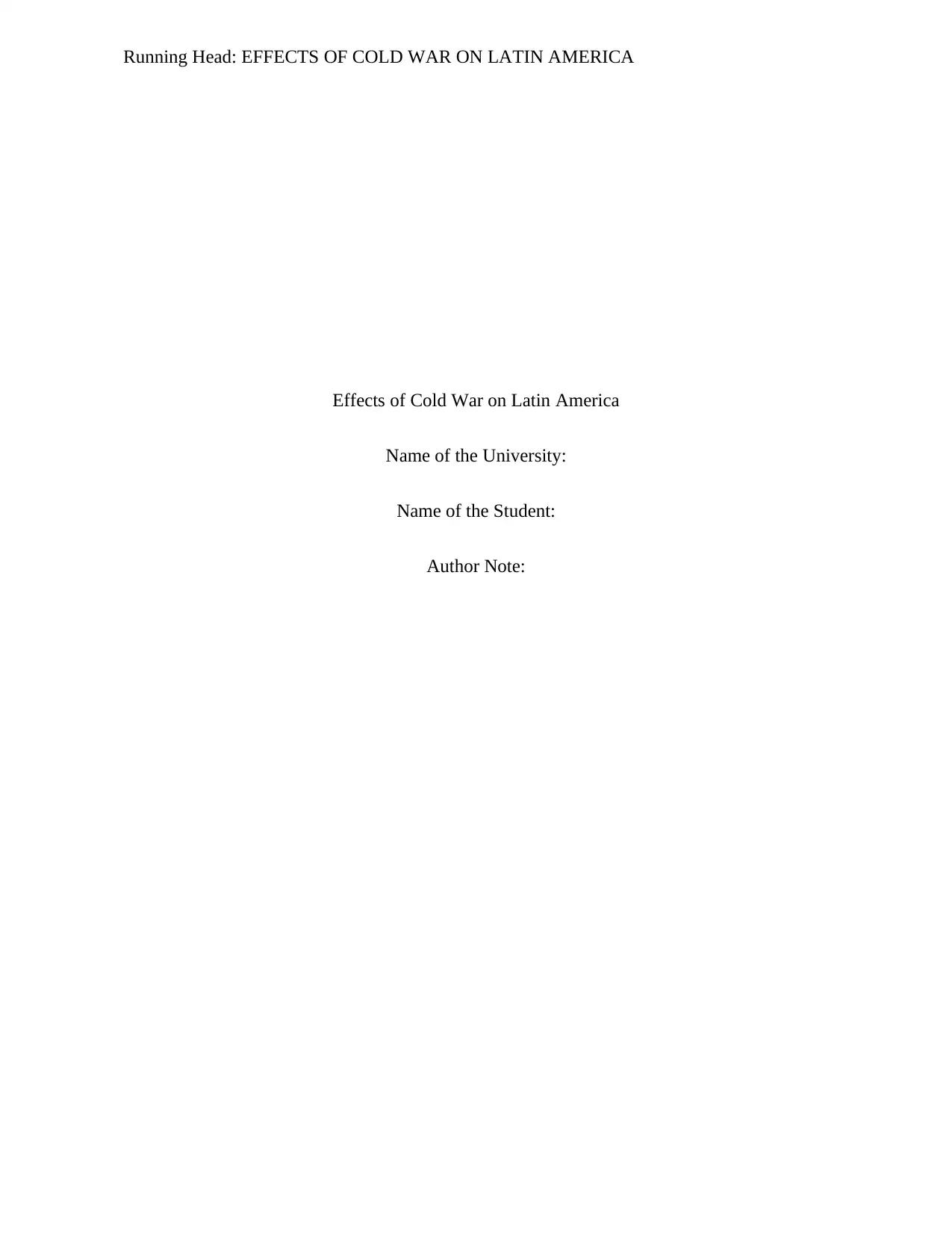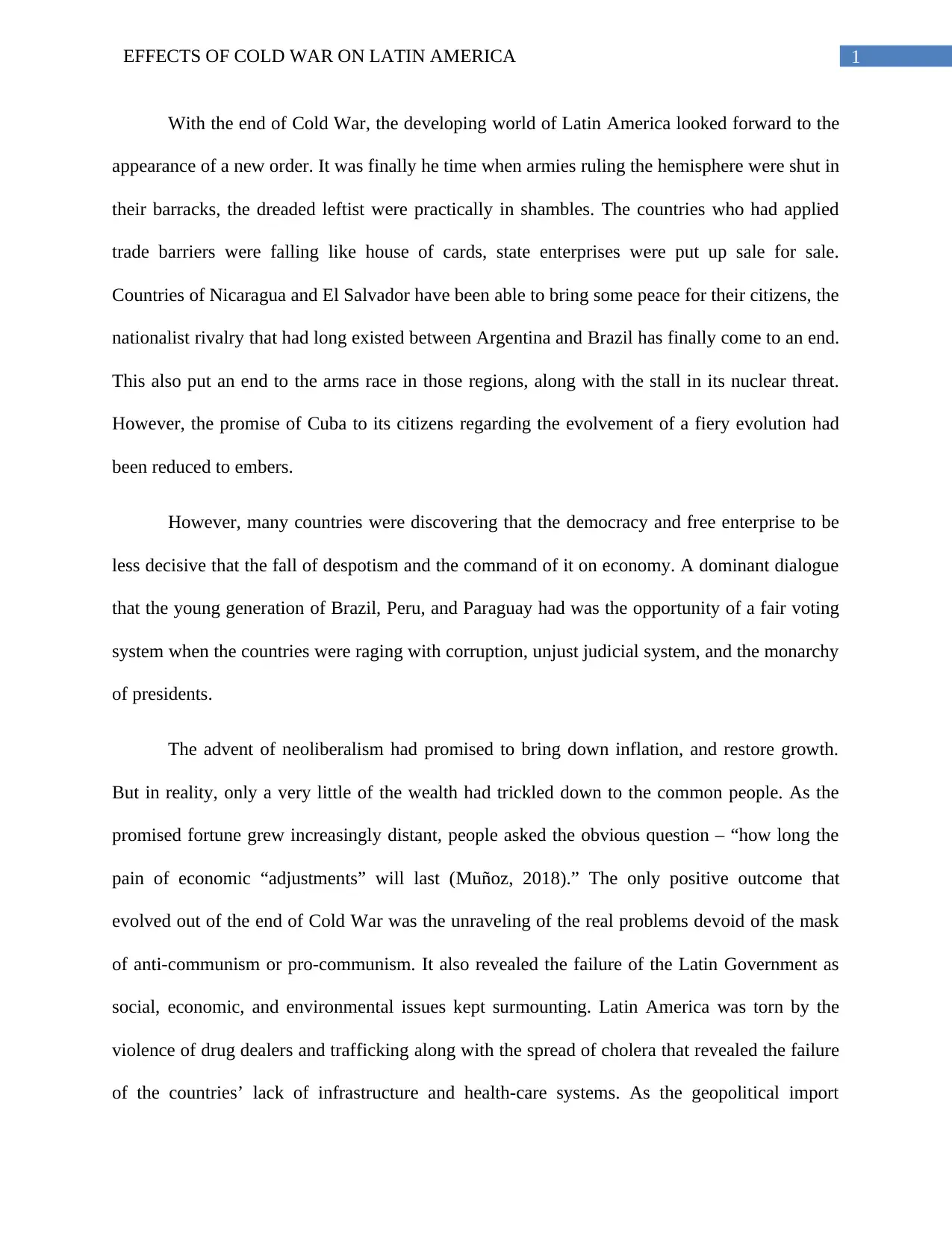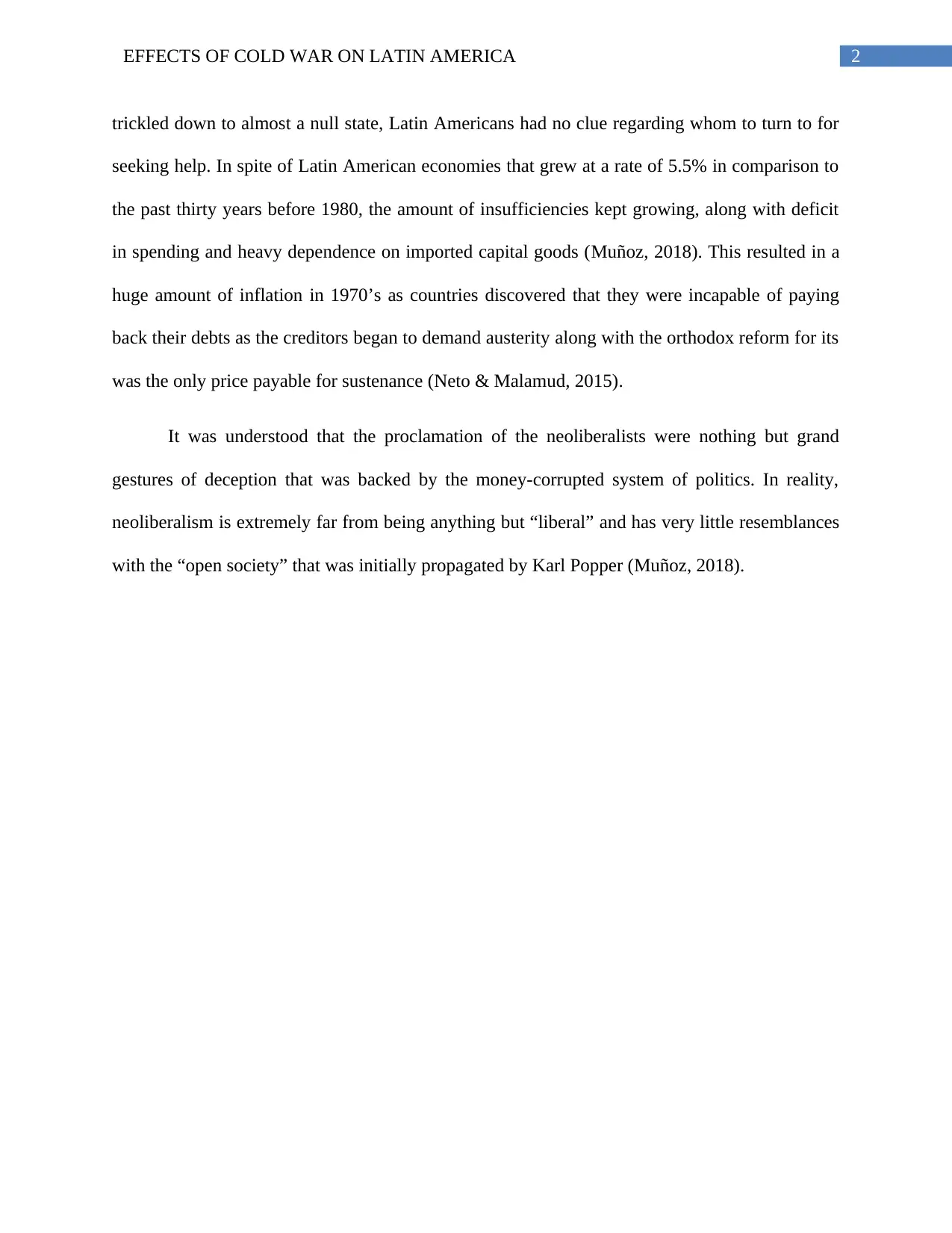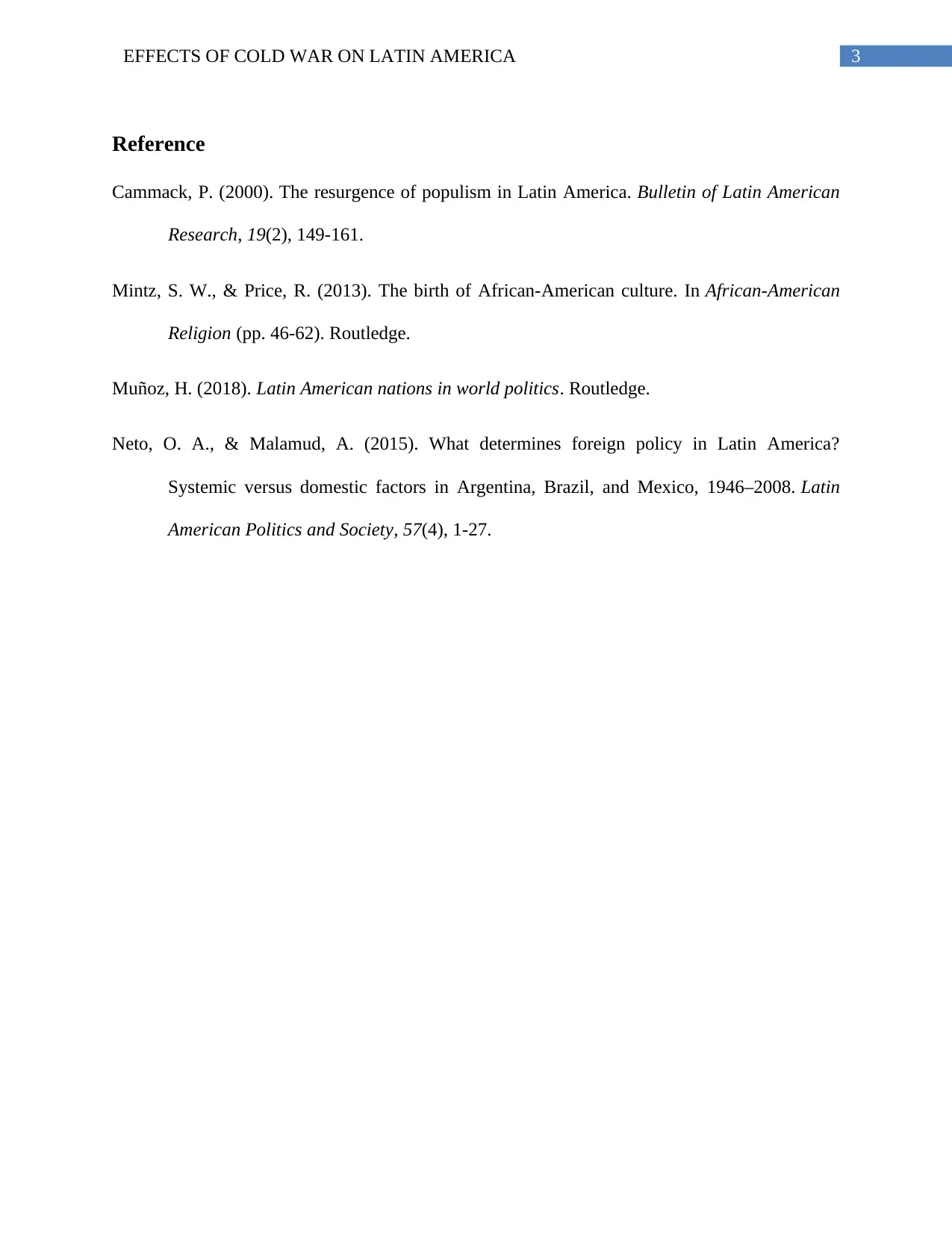Analyzing the Effects of the Cold War on Latin America
VerifiedAdded on 2022/09/09
|4
|741
|15
Essay
AI Summary
This essay examines the multifaceted effects of the Cold War on Latin America, highlighting the region's transformation after the conflict. The end of the Cold War brought hopes for a new world order, but also revealed underlying issues like corruption, unjust judicial systems, and economic inequalities. The essay discusses the rise of neoliberalism, its impact on Latin American economies, and the resulting social and economic disparities. It also explores the geopolitical shifts, the impact of drug trafficking, and the failure of infrastructure and healthcare systems. The essay analyzes the economic growth in Latin America, its dependence on imported goods, and the debt crisis of the 1970s. It concludes by emphasizing the lasting effects of the Cold War on Latin America's social, economic, and political landscape, and how the mask of anti-communism or pro-communism concealed the real problems. The essay also references relevant sources to support its arguments.
1 out of 4






![[object Object]](/_next/static/media/star-bottom.7253800d.svg)